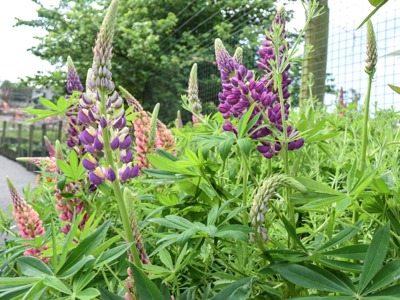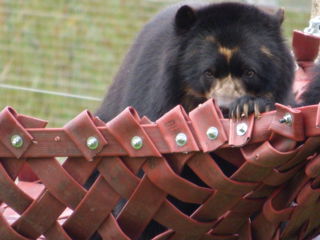
A Sustainable Zoo
Here at Noah’s Ark we are committed to protecting our local environment and future-proofing the park to reduce our carbon impact as well as teaching the next generation how to care for the natural world and become more sustainable. We are the proud winners of multiple awards for our sustainable efforts.
What we do
Campaigns
Noah's Ark Zoo Farm supports a number of conservation and green campaigns to help educate the public and funraise for conservation charities.
BIAZA's BioBlitz
Every year BIAZA organises a BioBlitz event which encourages individuals to get hands-on in wildlife surveying and monitoring. Here at Noah's Ark visitors take part in pond dipping and bird and bug surveying in our conservation area. Any information on the wildlife found is collated together to aid native wildlife surveys.
BIAZA's Love Your Zoo Week
Another annual campaign organised by BIAZA is the Love Your Zoo Week. Each May half term Noah's Ark joins the campaign to promote the important work zoos do for conservation, education and research
Annual Conservation events:
Every year Noah's Ark takes part in the big annual events to support the species we have here and their conservation efforts. Keep an eye on our What's On page for the latest updates on our upcoming events.
- World Tapir Day
- International Primate Day
- International Tiger Day
- World Giraffe Day
- Reptile Awareness Day
- Bear Awareness Day

Conservation and Fundraising
The animal keepers at Noah’s Ark are hugely passionate about conservation and have built strong relationships with wildlife charities, for which we fundraise throughout the year. For example in 2017 we held a week long African Carnival event for Africa Week encompassing World Elephant Day and World Lion Day. During the week we raised £907 to support the charities.
In addition to our own fundraising events, Noah’s Ark supports large numbers of community led fundraising events. In 2017 alone the zoo proudly donated over 500 tickets to local school, community and charity groups.
You can help at home!
Reduce, reuse, recycle
The facts:
- The UK alone produces more than 170m tonnes of waste every year, much of it food packaging.
- You could power a 60 watt lightbulb for 3 hours with the energy saved by recycling 1 plastic bottle.
- It takes the same amount of energy to make 20 recycled aluminium cans as 1 new can.
- 7 million coffee cups are thrown away every day in the UK (most of which are not recyclable).
- Plastic bags can take over 1000 years to decompose in landfill.
- In the oceans, plastics just break down into smaller microplastics which get eaten by marine animals and work their way up the food chain to eventually be eaten by us, and no one wants to eat plastics.
But it's not all bad news, going Green is easier than you think. We've come up with a short list of everyday things you can do to help the planet.
5 things you can do every day to help:
- Reduce, Reuse, Recycle. We've all heard this one, but it is so important. Current UK recycling is estimated to save more than 18 million tonnes of C02 a year – the equivalent to taking 5 million cars off the road. But there are still over 1,500 landfill sites in the UK and so there's definitely more to be recycled.
- Ditch the car. Try leaving your car at home, instead why not walk or cycle to the shops or if they're a bit further away why not take the bus. If you can stay off the road for just two days a week, you could reduce greenhouse gas emissions by an average of 1,590 pounds (721 kilograms) per year. You get the added benefits of saving money on petrol, and maybe a bit of fresh air and exercise too.
- Reduce single use plastic. The world is currently producing nearly 300 million tons of plastic each year - a significant amount of which will end up in the oceans. Think twice about whether or not you need that straw in your drink, don't forget to reuse your shopping bags, and take your reusable coffee cup with you. Did you know we offer a discount on hot drinks when you bring your own?
- Compost. You don't have to have a garden for this one, your local council can easily provide you with a free food waste bin. Food waste won't break down in landfill as the conditions are not right. It can stay there for years. Composting food waste means reducing landfill and providing valuable fertiliser to go back into the cycle.
- Turn it off. Turn off your taps and lights when they're not needed. Every time you remember to reduce your consumption give yourself a green high five.


